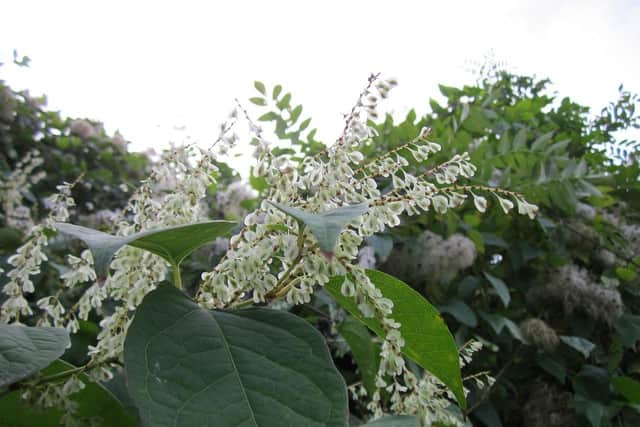Japanese knotweed: Nine Chesterfield high-risk areas according to latest heatmap - how to stop it
and live on Freeview channel 276
Japanese knotweed, an invasive plant that could destroy properties, has been found to be infesting a number of Chesterfield areas, latest figures have revealed.
According to a heatmap provided by invasive plant specialists at Environetuk, over 251 infestations have been found within four kilometers across the town.
Advertisement
Hide AdAdvertisement
Hide AdDue to its rapid growth rate of up to 10cm per day, Japanese knotweed has been known to cause damage to building structures and substructures by targeting and attempting to grow through weak places, such as fractures in masonry. It can also grow up to three metres tall in spring and summer and its roots can reach down to 20 metres underground.


Chesterfield areas with Japanese knotweed infestations
According to Environetuk, these are nine Chesterfield areas with over 100 Japanese knotweed infestations within a four kimotres radius. You can check if your area is infested with the destructive plant by keying your postcode in the interactive map.
- Brimington- 251 reported knotweed occurrences
- Tapton - 244 reported knotweed occurrences
- Calow - 205 reported knotweed occurrences
- Boythorpe - 205 reported knotweed occurrences
- Old Whittington - 196 reported knotweed occurrences
- Hasland - 196 reported knotweed occurrences
- Brampton - 195 reported knotweed occurrences
- Staveley - 112 reported knotweed occurrences
- Duckmanton - 100 reported knotweed occurrences
How to stop an infestation from spreading?
The government website advises against treating knotweed yourself unless you have the appropriate skills and experience. There are companies that specialise in treating knotweed and it advised to ask them for help instead.
Spraying or injecting the stems with chemicals can be an effective treatment to stop knotweeds spreading, however it usually takes at least three years to treat Japanese knotweed.
Advertisement
Hide AdAdvertisement
Hide AdAccording to the government website, when using chemicals, you may need to: make sure anyone spraying holds a certificate of competence for herbicide use or works under direct supervision of a certificate holder and carry out a Control of Substances Hazardous to Health assessment.
They say you also need to get permission from Natural England if the area is protected, for example sites of special scientific interest and get permission from the Environment Agency if the plants are near water.
Comment Guidelines
National World encourages reader discussion on our stories. User feedback, insights and back-and-forth exchanges add a rich layer of context to reporting. Please review our Community Guidelines before commenting.